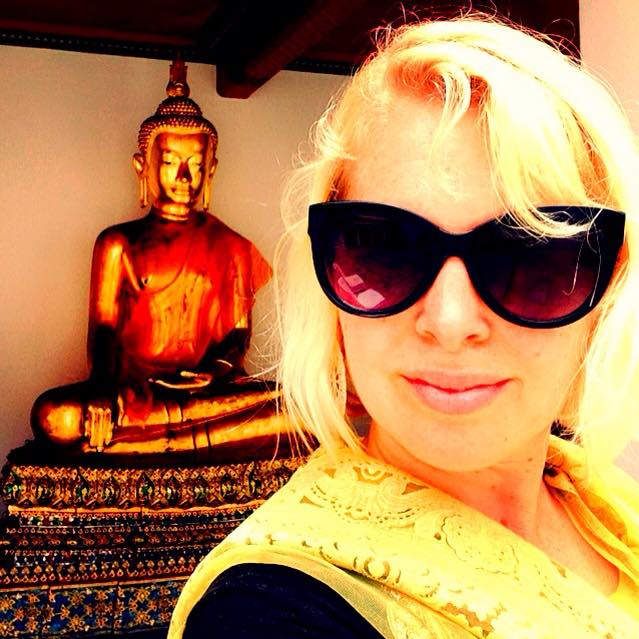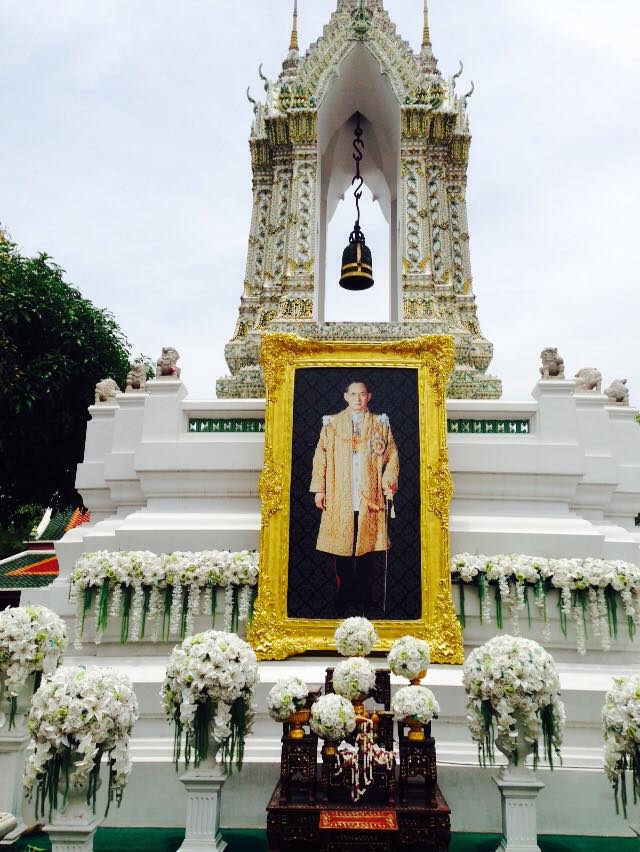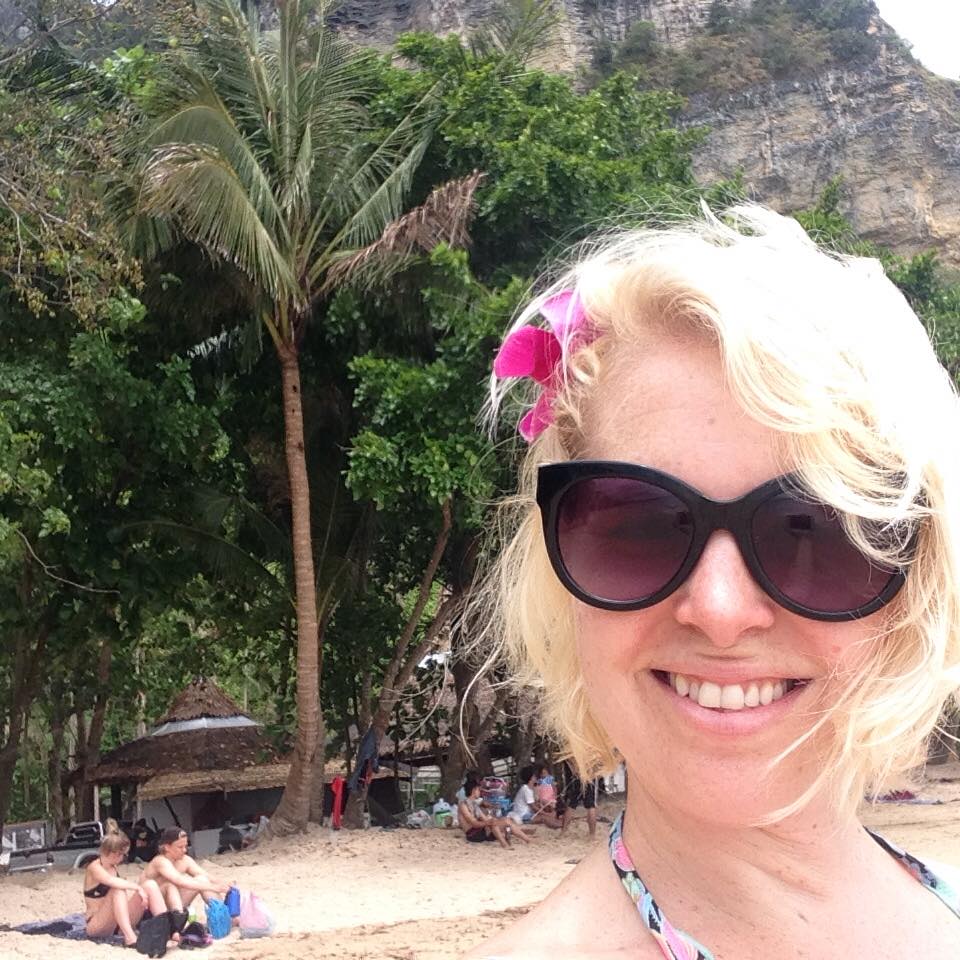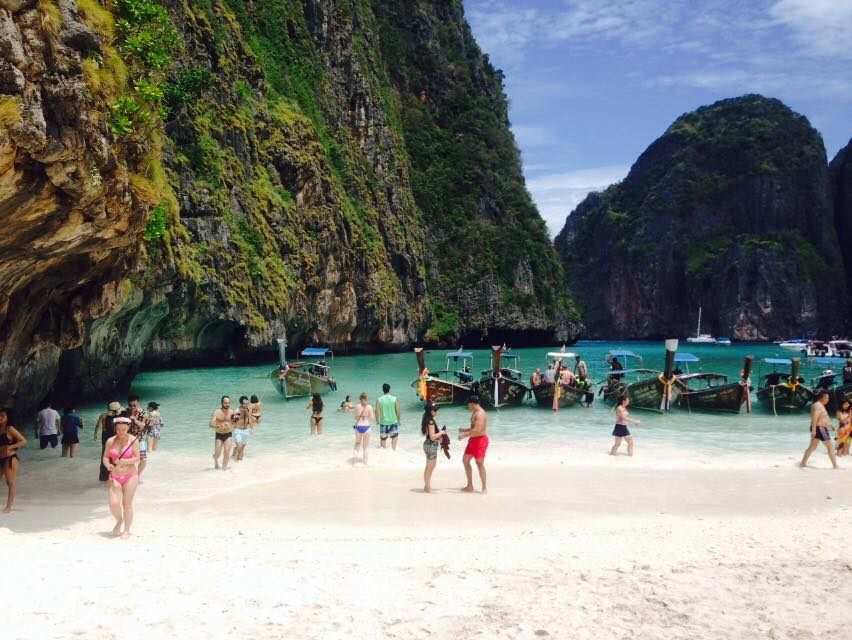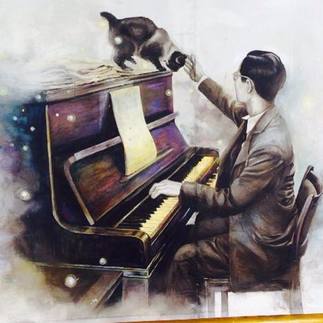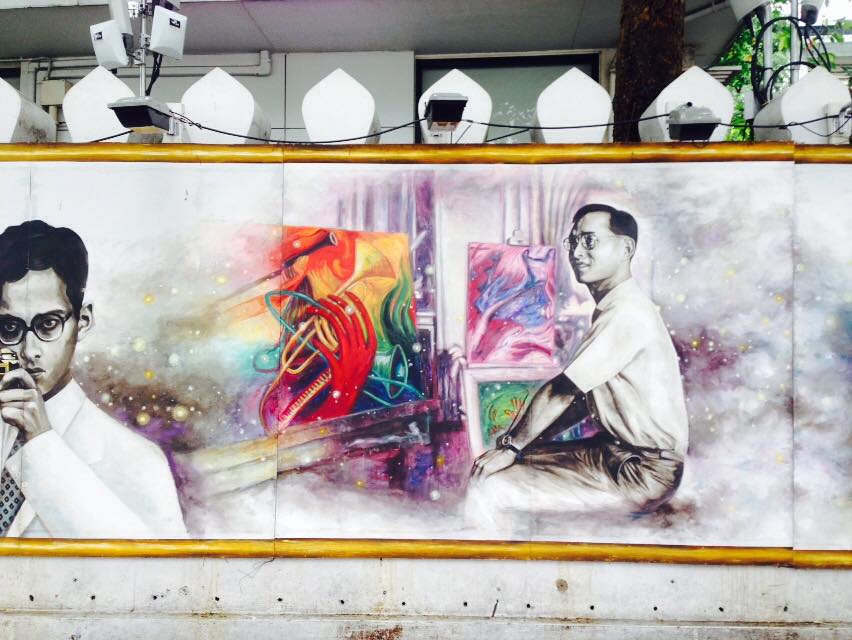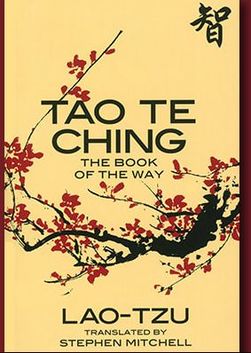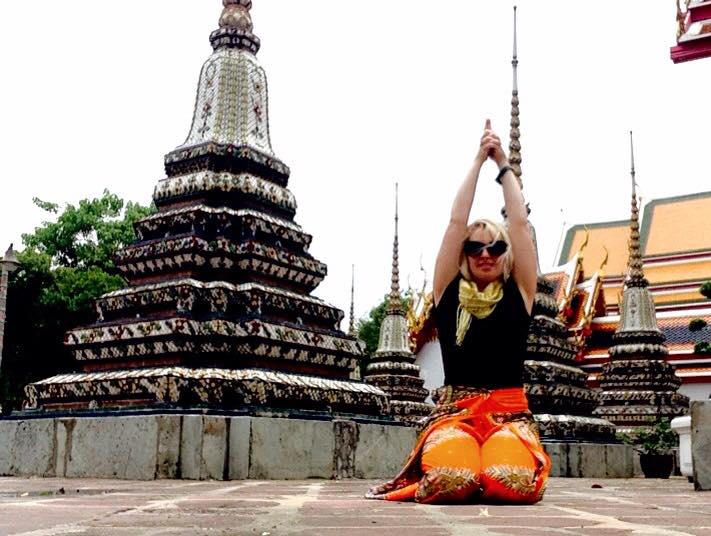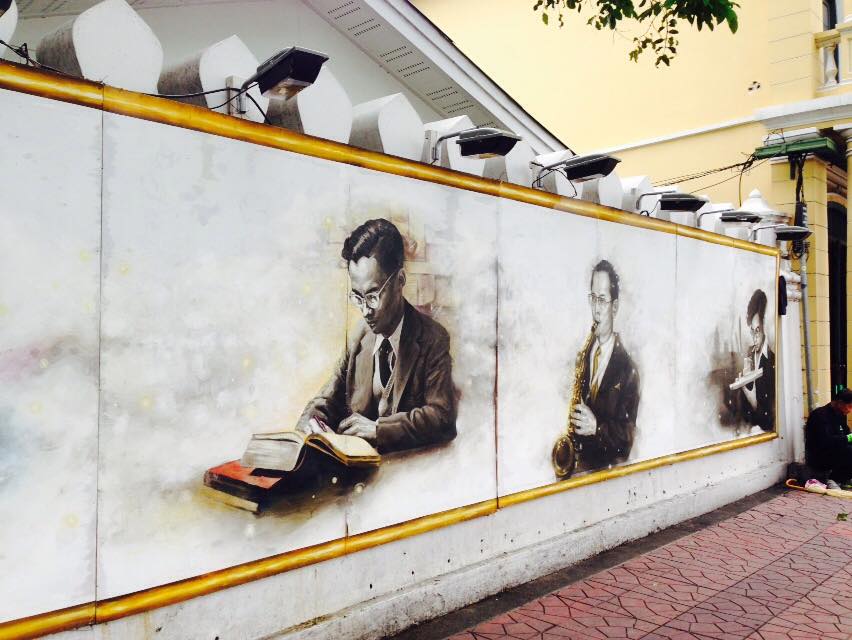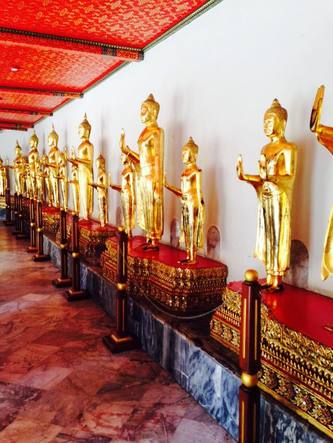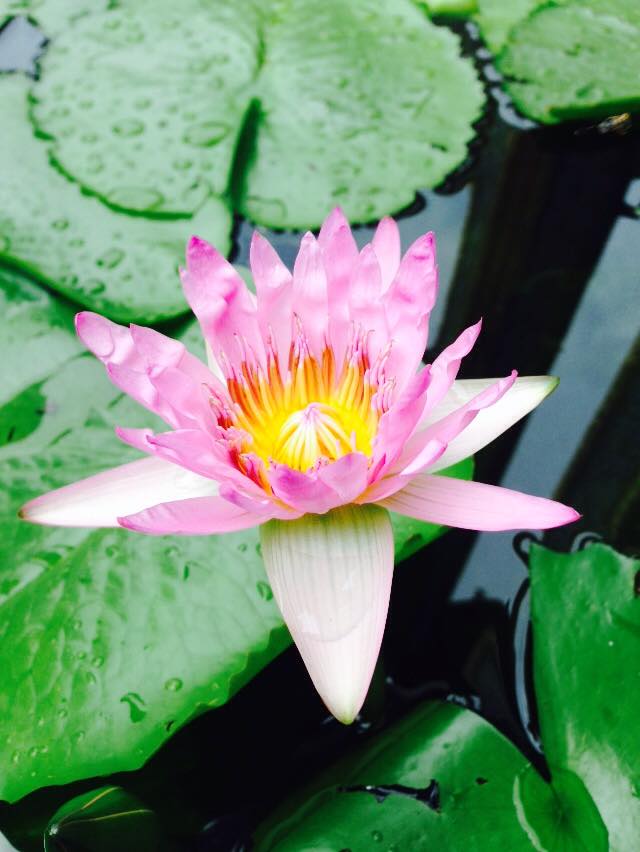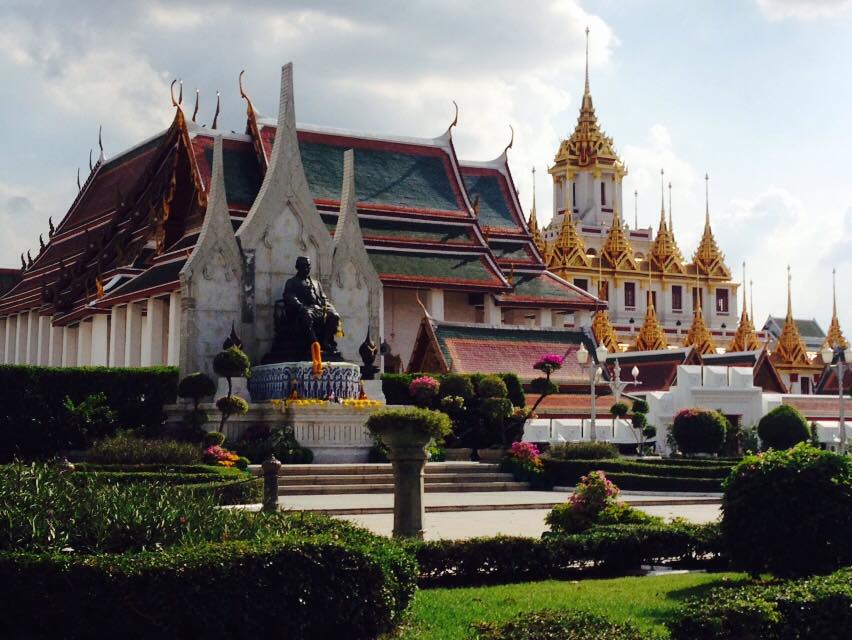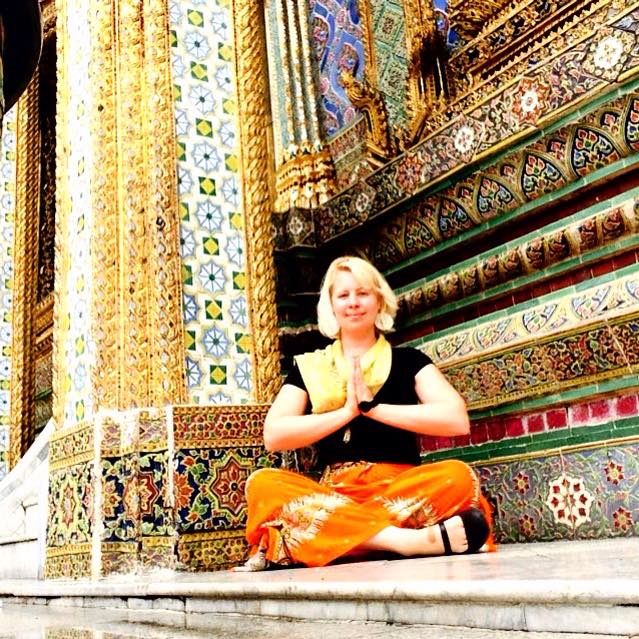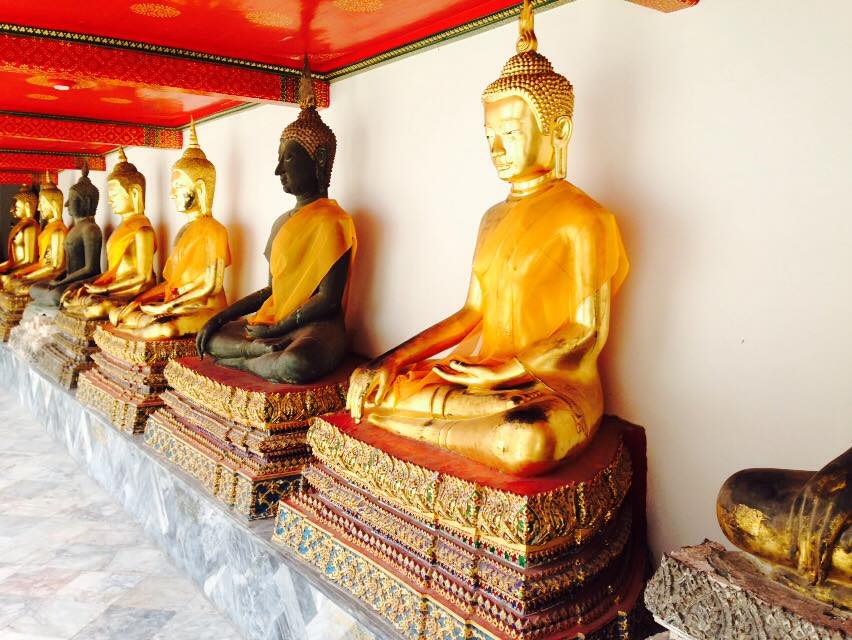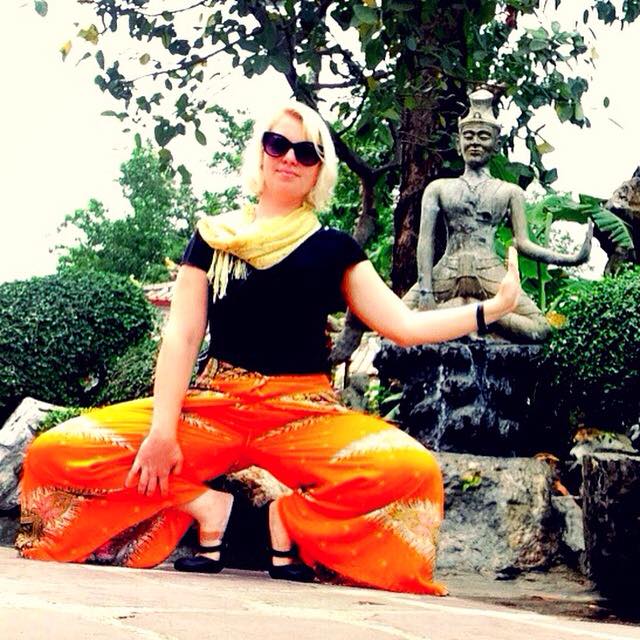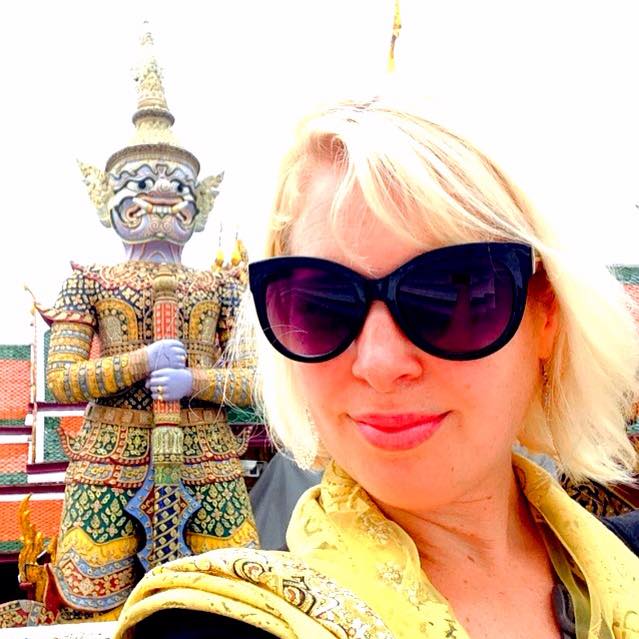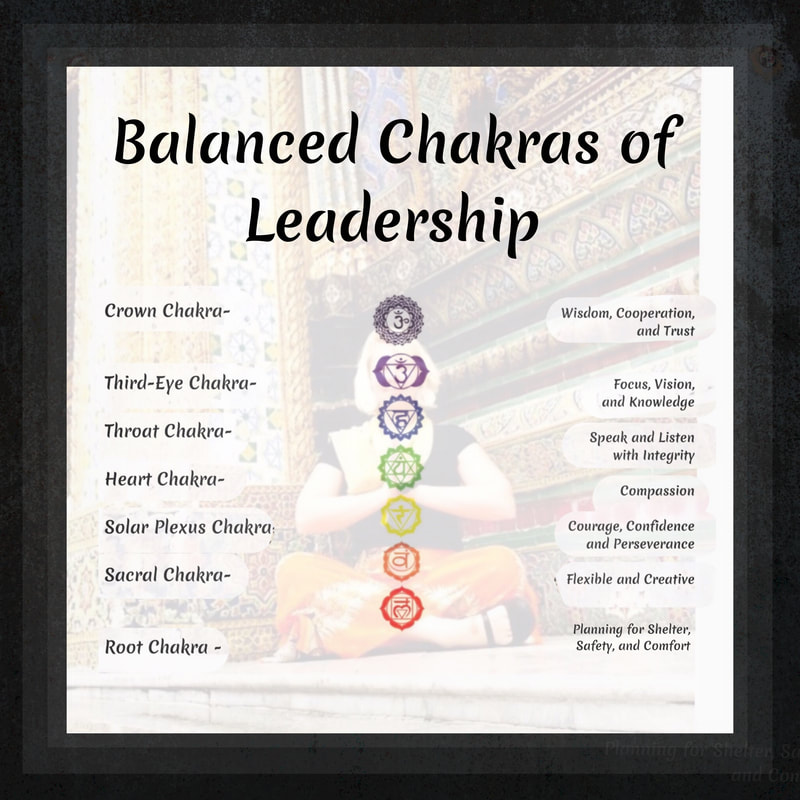As my flight arrived into Krabi, Thailand (March 28, 2017), I was surprised to hear an announcement, through the intercom, advising tourists to respect the feelings of the Thai people, following the death of King Bhumibol Adulyadej, a man seen as a father-figure in the country.
I’ll admit, I didn’t do my homework for this quick 3-day stop. Unlike most trips when I read up on everything I can about a country that I’m about to visit, since I was also visiting 7 other countries in seven weeks, I skimped out on Thailand’s history and political status. All I knew is that Thailand was often called Royal Thailand with a Grand Palace and it had breathtakingly gorgeous beaches and limestone cliffs.
Strolling through Bangkok, I was captivated by beautiful murals honoring the life of this king and witnessed local people dressed in black (for the last six months and will continue for up to a year) and crying at altars set up for this being who was believed to be divinely inspired.
According to the wisdom in Chapter 25 of the Tao Te Ching,
“In the world there are four greats,
and the king is one of them.”
Commonly known as The Great Way or simply, The Tao, written by Lao-Tzu, these 81 verses of the Tao Te Ching are the ultimate commentary on the nature of our existence. Five hundred years before the birth of Jesus, Lao-Tzu offered advice and guidance for a balance moral and spiritual life. In Wayne Dyer's book, Change Your Thoughts, Change Your Life, Wayne spent a full year reading the Tao Te Ching in many different translations and he wrote an essay on each chapter that brings the text alive into modern day life.
I soon learned that King Bhumibol Adulyadej, was the world’s longest-serving monarch, and he has left behind a legacy that will be remembered by his people. Throughout his 70 years on the throne, King Bhumibol the Great has been credited with skirting numerous catastrophes through intelligence, fortitude and his love of country. Chapter 59 offers, “The one who rules like the mother lasts long.” He was generally highly revered by the people in Thailand and his successor, Vajiralongkorn, does not share his same popularity.
He demonstrated this life-long learning principle as the King played saxophone with jazz legends like Duke Ellington, won prizes for sailing, was a keen amateur photographer and painted expressionist oil paintings.
With all this, he remained humble as he declared, “I must also be criticized. I am not afraid if the criticism concerns what I do wrong, because then I know. Because if you say the king cannot be criticized, it means that the king is not human.”
With all this, he remained humble as he declared, “I must also be criticized. I am not afraid if the criticism concerns what I do wrong, because then I know. Because if you say the king cannot be criticized, it means that the king is not human.”
Similarily, Bhumibol Adulyadej showed his humility and connectedness with other spiritual leaders around the world.
He commented on the Dalai Lama’s influence,
"A good person can make another person good;
it means that goodness will elicit goodness in the society;
other persons will also be good."
Throughout my travels, I noticed that Thailand’s quality of life stands out considerably compared to the countries around it. Thailand, means, Land of the Free and this king emphasized the importance of life-long learning for all. From establishing schools to granting scholarships, the Thai people bestowed him the title, “Teacher of the Land”.
Likewise, the Tao Te Ching tells us in chapter 54, “Cultivate virtue in the country, and it will be abundant.” He kept giving to the people, to improve their conditions. The people would say of him, “The more he does for others, the happier he is. The more he gives to others, the wealthier he is. (Study International)” Forbes estimated Bhumibol's fortune, including property and investments to be US$30 billion.
Likewise, the Tao Te Ching tells us in chapter 54, “Cultivate virtue in the country, and it will be abundant.” He kept giving to the people, to improve their conditions. The people would say of him, “The more he does for others, the happier he is. The more he gives to others, the wealthier he is. (Study International)” Forbes estimated Bhumibol's fortune, including property and investments to be US$30 billion.
My visit to the Grand Palace in Bangkok, Thailand
Bhumibol’s body has rested in Bangkok’s spired Grand Palace in a golden urn, draped in silk, gold and diamonds, for an official grieving period of one year, as Brahmin priests and Buddhist monks, wreathed in incense smoke, chant incantations.
What makes an amazing leader?
Some common traits across cultures include wisdom, knowledge, focus, planning, coaching, courage, patience, perseverance, flexibility, humility, integrity, and compassion.
These are qualities that come from balanced chakras, or energy centers along our spinal column. When our Root Chakra is balanced, we plan details for survival with appropriate food, clothing, and shelter. Our ability to be Flexible comes from a balanced Sacral Chakra of creative flow. Courage, confidence and perseverance come from a balanced Solar Plexus Chakra. While the HeartCchakra opens with compassion. The ability to speak and listen with integrity comes from a balanced Throat Chakra. Whereas, a balanced Third-Eye Chakra cultivates vision, and knowledge. Finally, we can feel a balanced Crown Chakra with wisdom, cooperation, and trust in a higher connected consciousness.
Some common traits across cultures include wisdom, knowledge, focus, planning, coaching, courage, patience, perseverance, flexibility, humility, integrity, and compassion.
These are qualities that come from balanced chakras, or energy centers along our spinal column. When our Root Chakra is balanced, we plan details for survival with appropriate food, clothing, and shelter. Our ability to be Flexible comes from a balanced Sacral Chakra of creative flow. Courage, confidence and perseverance come from a balanced Solar Plexus Chakra. While the HeartCchakra opens with compassion. The ability to speak and listen with integrity comes from a balanced Throat Chakra. Whereas, a balanced Third-Eye Chakra cultivates vision, and knowledge. Finally, we can feel a balanced Crown Chakra with wisdom, cooperation, and trust in a higher connected consciousness.
“When the emperor is crowned or the three dukes are appointed,
rather than sending a gift of jade carried by four horses,
remain still and offer the Way
(Chapter 64).”
Just as the Tao is considered to be The Way, so is the popular trek in northern Spain called the Camino de Santiago. Next summer, in 2018, I'm leading a Meditative Yoga Pilgrimage along this route. Watch the video below to learn more about why you would want to join me.
